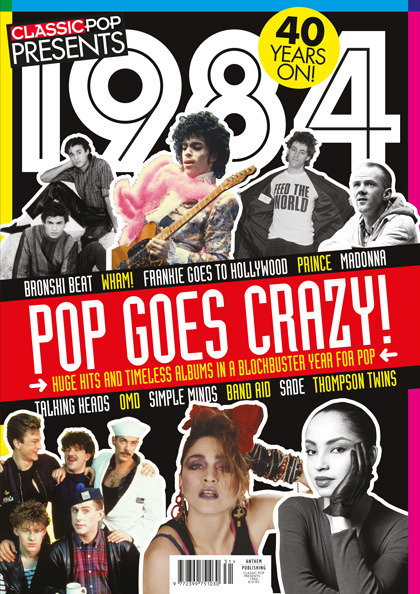#Frankie Goes to Hollywood
Text
youtube
youtube
99 notes
·
View notes
Text
youtube
youtube
All round 3 match-ups.
40 notes
·
View notes
Text


we must accept holly johnson from frankie goes to hollywood into the riddler canon.
45 notes
·
View notes
Text
William Holly Johnson: "with my undying, DEATH-DEFYING love for you"
Hob Gadling, 5 years before his meeting with his stranger, with no idea whether he's forgiven or not:

32 notes
·
View notes
Text

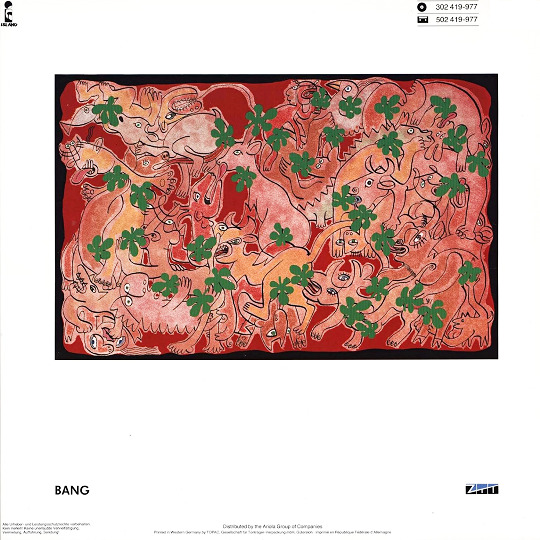
Frankie Goes to Hollywood - Welcome to the Pleasuredome (1984)
51 notes
·
View notes
Text
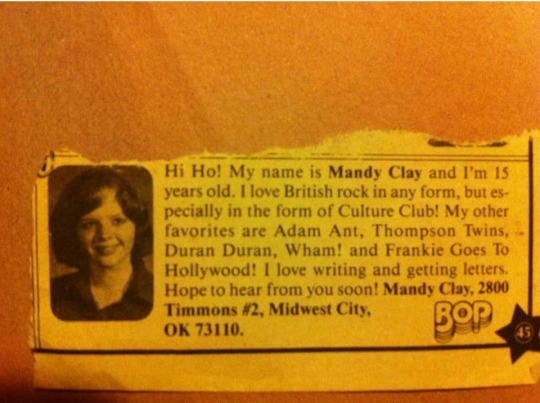
Hey kids!! Back in the 80s if you wanted friends they would print your photograph and home address in a national magazine and people could write you letters!! No teens were harmed in the making of this phenomenon (I assume). I got thousands of letters over the course of about 18 months. I met my first girlfriend this way, and together we stopped listening to ALL of these bands and became goth punks.
#lesbian queries#the 80s#magazine#pen pals#culture club#adam ant#duran duran#frankie goes to hollywood#bad haircuts#don’t wear bangs
24 notes
·
View notes
Text
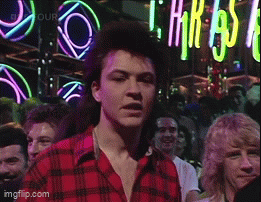
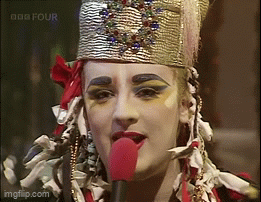
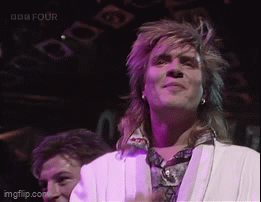
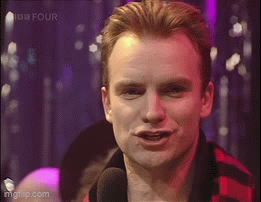
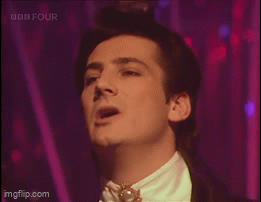
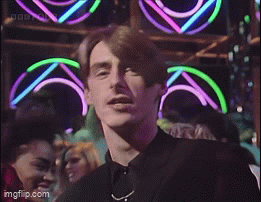


Band Aid - Do They Know It’s Christmas
Top of the Pops 1984🎄🎁🎅🏻
#band aid#do they know it's christmas#paul young#boy george#simon le bon#sting#tony hadley#paul weller#glenn gregory#marilyn#holly johnson#paul rutherford#culture club#duran duran#the police#spandau ballet#the style council#heaven 17#frankie goes to hollywood
48 notes
·
View notes
Text
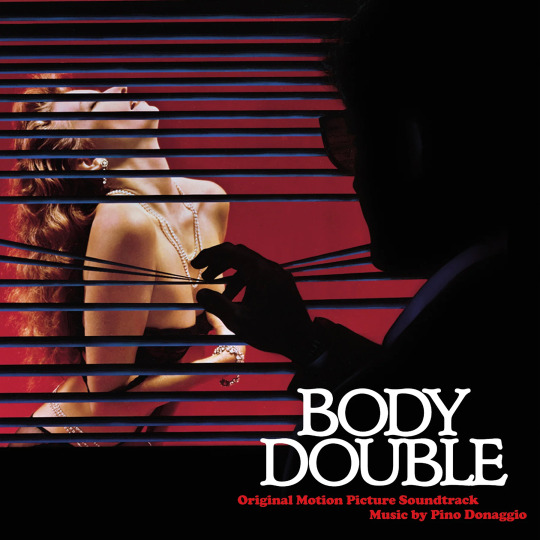

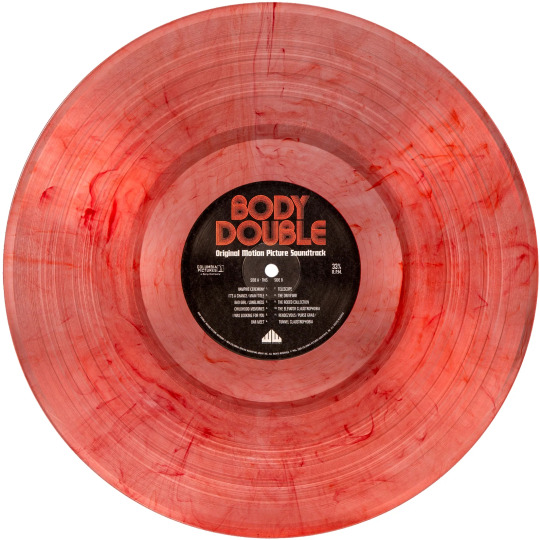

Body Double's original soundtrack is available on vinyl for $40 via Waxwork Records. Shipping in February, the score is composed by Pino Donaggio (Carrie, Don’t Look Now, Blow Out).
The 2xLP album is pressed on 150-gram red and blue colored vinyl. It's housed in a gatefold jacket with film laminate gloss coating featuring art by Robert Sammelin and an 11x11 insert.

#body double#brian de palma#pino donaggio#craig wasson#melanie griffith#gregg henry#deborah shelton#waxwork records#vinyl#soundtrack#gift#robert sammelin#80s movies#1980s movies#frankie goes to hollywood
31 notes
·
View notes
Text
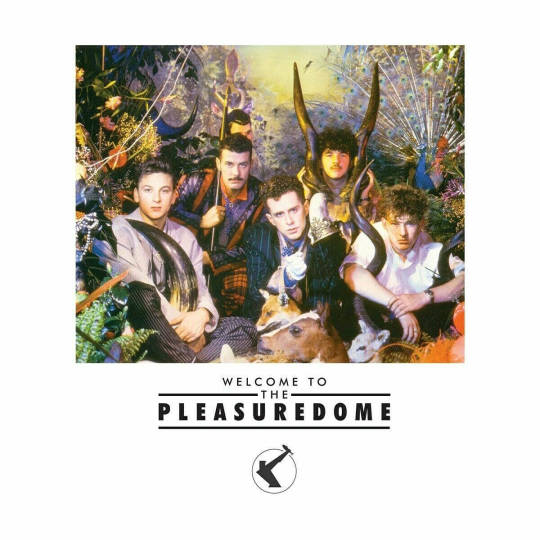
This week in 1984, the debut album by Frankie Goes To Hollywood, Welcome To The Pleasuredome, entered the UK album charts at No.1.
32 notes
·
View notes
Text
All of Us Strangers...
youtube
So, I got the chance to watch "All of Us Strangers" today as a preview 6 days before the official release in Germany.
Phew...
What a movie. I cannot remember, when I've last seen something both so beautiful and gut-wrenching...
The cast is extraordinary. Andrew Scott brillant as usual. Paul Mescal amazing. Also Claire Foy and Jamie Bell on the side are beautiful.
As for the story, I find it impossible to tell details, without giving spoilers.
Go, watch it. Enjoy the beautiful moments full of energy and tension. Brace yourselves for the heartbreak. There's plenty of it as well.
The famous "final 15" almost feel like - as we say in Germany - a children's birthday party to me in comparison.
Nevertheless, a beautiful movie about the pursuit for peace and happiness, kindred spirits, loss, childhood trauma, family and first and foremost:
The power of love
A force from above
Cleaning my soul
The power of love
A force from above
A sky-scraping dove
Flame on burn desire
Love with tongues of fire
Purge the soul
Make love your goal
I'll protect you from the hooded claw
Keep the vampires from your door
❤️
#all of us strangers#andrew scott#paul mescal#claire foy#jamie bell#frankie goes to hollywood#the power of love#i'm not crying you're crying#love#loss#trauma#family#soulmates#queer trauma#Youtube
26 notes
·
View notes
Text
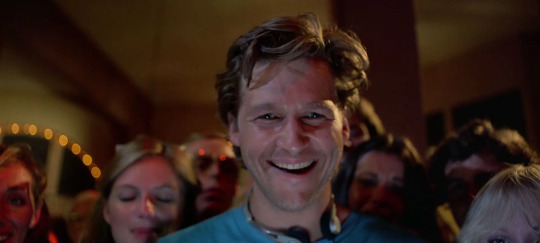
Live those dreams.

Scheme those schemes.
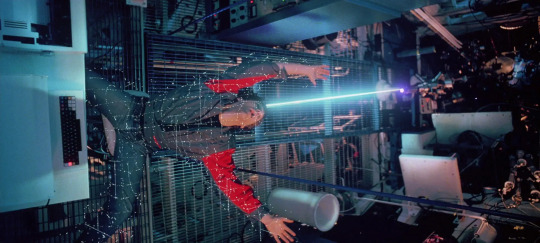
Hit me with those laser beams.
55 notes
·
View notes
Text
youtube
youtube
All bracket 2, round 2 match-ups
13 notes
·
View notes
Text
'While filming All of Us Strangers in his childhood home outside of London, Andrew Haigh began to see ghosts. “I hadn’t been in that house since I was seven or eight, so it was like going into a haunted house,” he recalled. “It was really, really unusual.”
The writer-director, who sat down with Geek Vibes Nation following the film’s New York premiere, had adapted a 1987 Japanese horror novel into a loosely autobiographical story about a shut-in screenwriter (a devastating, recently Golden Globe-nominated Andrew Scott) who, upon revisiting the home in which he grew up, reencounters the spirits of his long-dead parents (Claire Foy and Jamie Bell). It only made sense, then, for Haigh to have the film reflect his own coming-of-age.
“It felt like the ghosts of my life were in the house telling the story of the film.”
Despite the film being drastically different than its source material, “Strangers” by Taichi Yamada, they’re both effectively ghost stories. However, Haigh’s choice to never apply external logic allows for his ghosts to better serve the lead character.
“There are lots of holes in any ghost story,” he says, chuckling. “‘Are they actually living in the house? Is someone else living in the house? Is he going into the house? Is he not going into the house? Is it all in his mind?’ I think you have to abandon logic to some extent…we are going into [the main character’s] mind, his subconscious. I decided to look at the whole film, really, as a manifestation of his emotional state.”
Through multiple beautifully-penned conversations, Scott’s character comes to terms with his parents’ untimely death as one of the year’s best films unravels its yearning yarn. Read more about Haigh’s process in our full conversation with him below, edited for length and clarity.
This film is based on a Japanese novel, specifically a ghost story. You approached it from a more humanistic place and adapted it very autobiographically and yet, in a strange way, it still feels like a ghost story in the same way as the original novel. What piqued your interest about taking this very surreal novel and placing your own experiences into it?
It’s really interesting when you start thinking about doing a ghost story. The novel is a very traditional ghost story and I liked it for that, but when I was trying to work out how to put myself into the story, I had to ask, “What do ghosts mean to me and what do they mean in British culture?” Because they mean something very different in Japanese culture than they do necessarily in British culture. To me, ghosts felt like what haunts us as adults, what we drag around with us. They’re always there, lurking under the surface, standing behind you in the shadows. I decided that I was going to ground [the movie] much more in a metaphysical space, rather than do it as a more naturalistic story that then ended up having ghosts in it. So much of the adaptation became about trying to navigate that tone and working out if people were going to be frustrated because there’s definitely different rules that you have with ghost stories as a logic, but I ignore that logic at times and then look into it at other times. In the end, I was like, “F**k it. I’m just going to play around with what I think is emotionally interesting and hope that the audience comes along for the ride.”
That makes me think of a very interesting choice that you make in this film. When the main character, played by Andrew Scott, encounters his parents initially, it feels like maybe a time travel thing. In reality, they’re just specters in this home. I was wondering if you could break down that logical paradox you’re talking about, this idea of wanting to have them as ghosts but having them still be very human in the eyes of the main character.
Yeah, that’s the thing. The emotions that we carry around when we lose someone – it doesn’t even have to be through death, it can be for whatever reason, you’re just not with them anymore – all the pain that we carry feels so real. I wanted that to feel as real as possible. I mean, look, logically, there are lots of holes in any ghost story. “Are they actually living in the house? Is someone else living in the house? Is he going into the house? Is he not going into the house? Is it all in his mind?” I think you have to abandon logic to some extent because, of course, it’s not logical. Really, we are going into [the main character’s] mind, his subconscious. I decided to look at the whole film, really, as a manifestation of his emotional state but grounded in a way that makes it seem like his parents are in this house when he opens the door. There they are and, suddenly, he’s going back into the past but it’s not the past. They’re not real but they take on their own lives. It’s not all in his imagination either, because they’re also having conversations without him there, we gather. It excited me that I could go down all these avenues.
I love that this film really breathes. Many of the shots are long and the performances live within silences. Were there any specific touchstones in the visual style of this film that you were specifically thinking about in terms of this tone?
It was a tricky one to get right. I always have a little list of films that are interesting to me at the time, but there was such a mixture of things. I looked at Jacob’s Ladder and Rosemary’s Baby and more traditional genre pieces, and then I had Quiets and Whispers, [Ingmar] Bergman’s film, Black Narcissus, [directed by] Powell and Pressburger, and Leviathan, the Russian film [directed by Andrey Zvyagintsev], all of these other films. Rather than saying, “I want the film to be like these,” it was like, “I want to combine a realism and a naturalism with an otherworldly genre-esque element, what decisions can we make going forward so that it feels real but also not real?” It was hard to find anything that felt exactly like a good reference because we were trying to exist within the gaps of things. In the end, I think the whole team really loved that because we were like “Let’s just treat it as a drama,” essentially, because that’s really what it is.
Yeah, I don’t think anybody watching this film could imagine that it was based on this horror story because you ground it in very personal terms. I heard that you shot parts of this film in your actual childhood home, so I’m sure there was an almost spectral feeling when harnessing your memories there.
Definitely. I hadn’t been in that house since I was seven or eight, so it was like going into a haunted house. It’s weird. You’re going back and you are feeling how you used to feel in an environment that you used to live in. You’re recognizing things that you haven’t thought about in 40 years. I’m even recognizing the feel of things. I would put my hand on the banister and I was like, “Something in me is remembering this banister.” It was really, really unusual. It created this really interesting tone for everybody, for all of the crew. Even the actors were like, “Wait, so this used to be your mum and dad’s bed?” This was my bedroom, this was my wallpaper – we recreated the wallpaper – that was the color of my walls. It felt like the ghosts of my life were in the house telling the story of the film.
We have to talk a little bit about Andrew Scott. Fans of him already know that he’s a marvel of an actor, but I think that this film is introducing the film community to him in a very, very big way. It’s a very difficult character to play because, not to say any spoilers, but he is very much a singular entity in the film. How did you and Andrew hone in on him as this grounded piece of a very ethereal story?
Basically, a lot of conversations. He was the only person we went to for the lead. I had liked him for a long time and was always amazed he hadn’t been a lead in a film.
You and us all!
You know, he’s 46 now! He’s a brilliant actor, so subtle and careful and precise, but then really natural at the same time. It’s a real skill. When I sat down with him, we went through the script and we talked about what the film means to me, but so much of it felt like it was his life too. It was so joyous because he was like, “You’ve written a script about me.” That’s what I want from a script, because it’s not just about me. I want it to be about lots of people, regardless of their actual experience. He really responded to it and then we talked a lot about navigating between being an adult and being a child, which I think is the hardest thing that he does [in this film] and he does it beautifully. When he comes back to see his parents again, physically he looks the same but somehow he feels younger. He even looks younger. He feels more innocent and he’s desperate for them to love him and there’s all of these things going on. Then, it changes again when he goes back into the present tense, let’s call it, of the story. I think he does such a good job allowing his vulnerability to come out. It’s a very vulnerable performance, it’s exposing. It’s all of the things that are not easy for an actor to get to, but he just threw himself in.
I have to ask you about “The Power of Love,” which is a beautiful song featured significantly in the film. I’m sure it has a significance to you based on your history, but I’m wondering if there’s a significance to it that goes beyond merely being a period touchstone.
It had an emotional resonance because when I was a kid – this is the middle of the 80s – I used to love that song. I was 10 years old and I couldn’t quite work out why I loved it. When I look back at it grown up, I now understand why I loved it. It’s a big, orchestral, powerful pop song and I feel like, for young people, pop songs become a way to express their inner selves. They themselves can’t express their longing or what they want from the world at that age. In the end, this is a film about love. It is a film about the complications of love, both parental and romantic, how they are linked together, how you can find love, lose love, find it again, and lose it again. We’re all going to end up having lost love in our lives. We’re all going to lose our parents. Lots of us might lose our partners. That’s what happens in life, but the importance of love is the key. When I got to the end of the film, I was like, “You know what? Let’s make it go crazy. Let’s just go wild with it and be big and operatic.” I think it’s almost speaking to my old childhood sense saying. “Do you know what? It is possible. When you grow up, you are actually going to find love.” For me, it was about that.
What’s next for you? Are you looking to find another horror film to personalize, or are we going in another direction?
[both laugh] I’ve got a couple of projects all at a similar level that could happen next year. There’s always so many reasons why you do or do not do something – availability, money, all of those things. I’m hoping something will fall into place. But also, now that this film is being embraced, the next film will be in conversation with this one. So, I have to be sure that what’s next makes sense. That doesn’t mean going bigger or smaller or anything. It just means that it will have a relationship with what’s come before. I’m just trying to work out what the right decision is.'
#Andrew Haigh#The Power of Love#Frankie Goes to Hollywood#All of Us Strangers#Andrew Scott#Paul Mescal#Claire Foy#Jamie Bell#Golden Globes#Taichi Yamada#Strangers
10 notes
·
View notes
Text
Wait, Relax is about jacking off? I thought it was about killing the Malaysian Prime Minister.
7 notes
·
View notes
Text
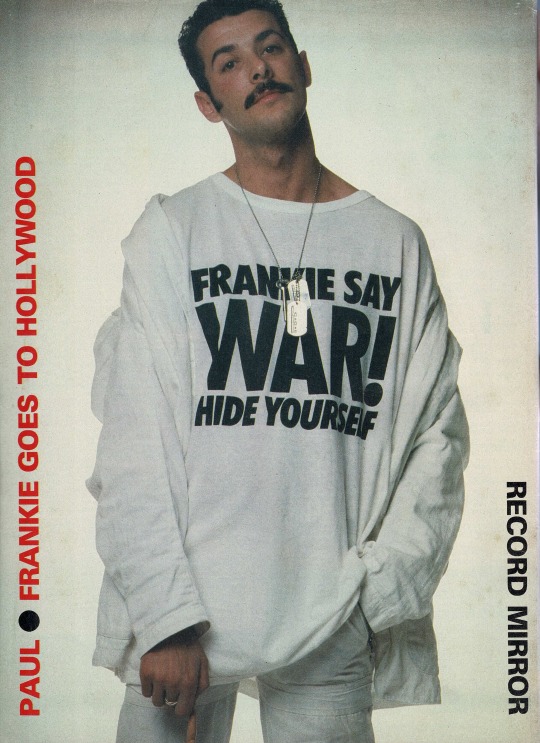
13 notes
·
View notes
